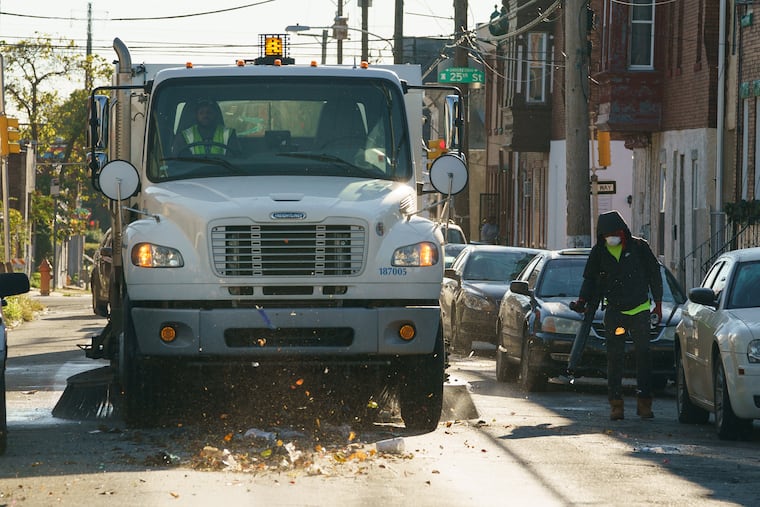Philly streets won’t clean themselves | Editorial
Jim Kenney renewed his vow to sweep the streets after he was sworn in to his second term Jan. 6. But can he sell Philadelphians on the notion of having to regularly move their parked cars to accommodate the service?

The well-deserved “Filthydelphia” nickname will never be tossed into history’s dustbin unless everyone who lives in, works in, and visits this city steps up — including Mayor Jim Kenney, who was sworn in Monday to his final term. Kenney’s inauguration speech renewed a vow made during his first mayoral campaign and promised that street cleaning will return “to every neighborhood and commercial corridor" in the city by 2023. Doing so “will even require folks to move their cars,” said Kenney, later adding, “if you don’t want to move your car, tough.”
We welcome the Philly directness of the mayor’s declaration, although City Hall has since been busy reassuring constituents that moving cars in every neighborhood on every cleaning day may not be necessary. More important was the mayor’s frank acknowledgment of the historically fierce civic belief, especially in South Philly that being required to temporarily vacate a parking space constitutes a civil liberties violation.
"People would literally come up to me, get in my face, and scream at me, ‘Who are you to tell me I have to move my car? This isn’t a communist country,’” former city councilman Frank DiCicco told WHYY this week about his effort to establish a pilot street cleaning program in the early 2000s.
Overcoming neighborhood resistance may require the same level of stubbornness that the mayor has exhibited in the face of another of his unpopular ideas: the sugary beverage tax which is still being debated 3 1/2 years after it became law. The optics of some of his administration’s other efforts related to clean streets, such as a pilot project in which cleaning machines were inoperable on narrow streets, and the use of leaf-blowers that proved unpopular with some residents, probably were less than persuasive to those who see “Filthydelphia” as beyond redemption.
» READ MORE: Philly’s litter problem is no mystery. Why won’t City Hall step up and solve it? | Opinion
» READ MORE: Inquirer Editorial: No, it's not Filthydelphia
Ever since the city abandoned regular street cleaning in the early 1970s to save money, the plague of litter that defaces commercial and residential areas across Philadelphia has worsened — despite efforts by the countless thousands of residents, business owners, civic associations, and organizations determined to take good care of their surroundings. The filthy mess on sidewalks, streets, and public places has many sources, including illegal dumping by firms and individuals from outside the city, but in the end, much of it is created and tolerated by people who live, work, or visit here.
Nevertheless, a lot has changed in the 20 years since public opposition derailed the last effort to bring back street cleaning. Many younger Philadelphians don’t have cars and at least some of their neighbors may have grown more willing to put up with the temporary parking inconveniences in order to improve the neighborhoods they love.
Kenney’s call for bringing this essential public service back to every part of Philly — not only Center City or more affluent residential sections, but “middle” neighborhoods that don’t attract development, and areas starving for investment, makes an inclusive statement. And by reminding residents that they may need to move their cars so crews can clean the streets, the mayor sent a signal that getting rid of "Filthydelphia” won’t happen unless we all pitch in.